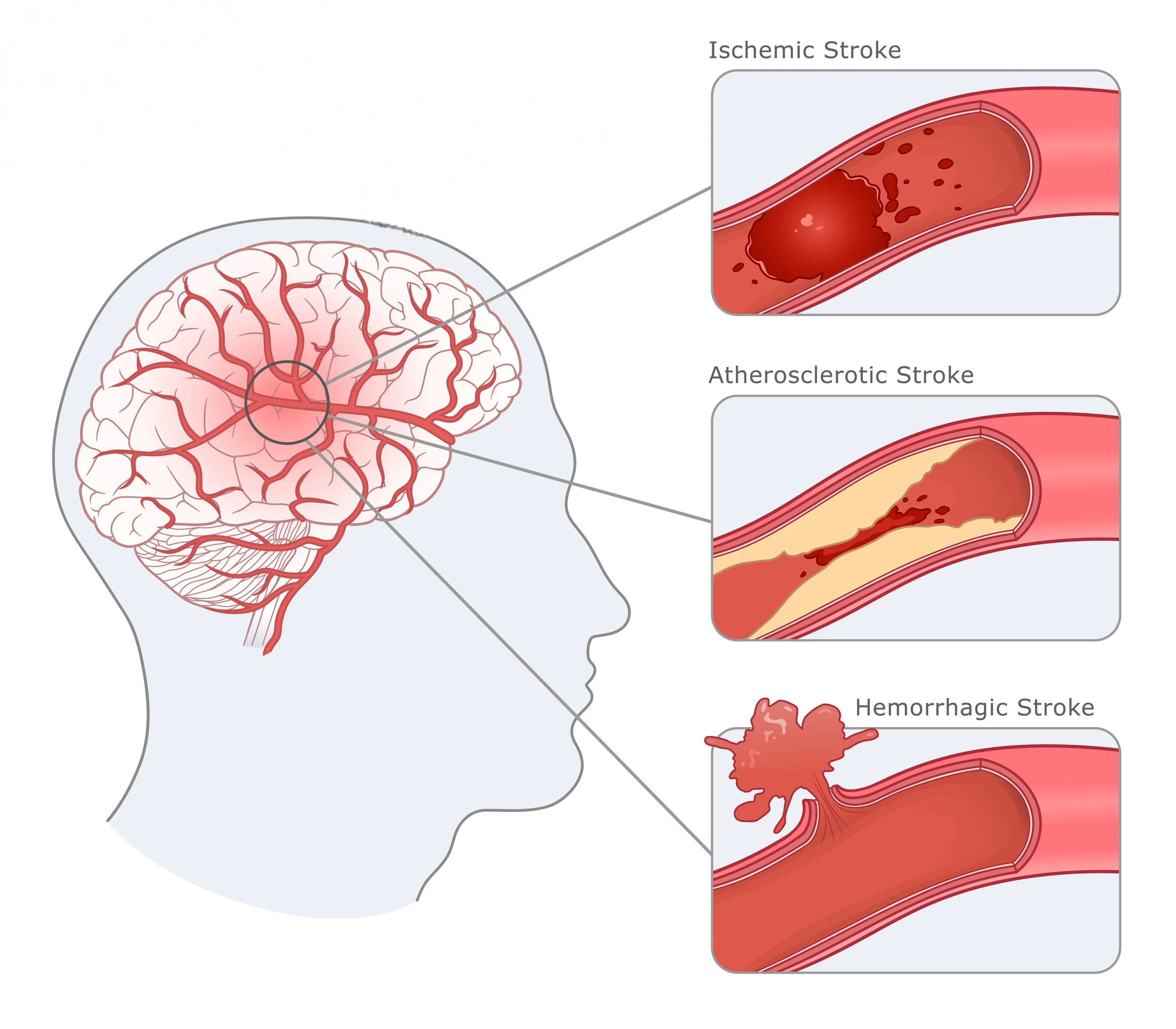
Protect Your Brain. Detect Stroke Risk Early.
Using advanced carotid and heart ultrasound imaging, our stroke prevention screening identifies silent blockages and early vascular changes — giving you actionable insights to protect your brain, reduce your stroke risk, and maintain long-term cardiovascular health.
Most Strokes Are Preventable — Don’t Wait
Stroke is the 5th leading cause of death in the U.S., affecting nearly 800,000 people annually (CDC, 2024).
Up to 80% of strokes occur without warning, making early detection critical (NIH). Carotid artery disease contributes to about 20% of ischemic strokes, often remaining undiagnosed until a major event (AHA, 2011).
Detecting silent vascular changes early allows timely lifestyle adjustments or medical intervention, reducing stroke risk by up to 80% (American Stroke Association).
Comprehensive Imaging to Detect Stroke Risk Early
Our Stroke Prevention Screening uses advanced, non-invasive imaging to evaluate your carotid arteries and heart, giving you a full picture of your vascular health. Early detection allows you and your physician to take proactive steps before a stroke occurs.
Included Tests:
Carotid Doppler Ultrasound: Detects narrowing, blockages, and plaque buildup in the carotid arteries to assess stroke risk.
Carotid Intima-Media Thickness (IMT): Measures early arterial thickening, identifying subclinical vascular disease before symptoms appear.
Echocardiogram: Evaluates heart structure and function, detects potential clot sources, and identifies cardiac conditions that may increase stroke risk.
Are You at Risk? Know Before It’s Too Late.
Stroke can happen without warning, but certain factors increase your risk. Early screening is crucial if you have one or more of the following:
Risk Factors:
Age 40+
High blood pressure (hypertension)
Diabetes
High cholesterol
Smoking or tobacco use
Family history of stroke or heart disease
Previous TIA or minor stroke
Expert Care. Accurate Results.
At Blackpoint Diagnostics, we combine advanced imaging technology with board-certified cardiologists and skilled sonographers to provide precise, actionable insights. Our focus is preventive cardiovascular care — helping protect your brain and heart before serious events occur.
Key Advantages:
Hospital-grade imaging in a convenient outpatient setting
Exams performed by highly trained sonographers (RDCS/RVT) and reviewed by board-certified cardiologists
Comprehensive screening: carotid Doppler, IMT, and echocardiogram in one visit
Rapid, clear results with guidance on next steps
Painless, non-invasive, and patient-focused experience
Early detection can reduce stroke risk by up to 80% (American Stroke Association)
Know Your Risk. Take Action. Protect Your Future.
After your stroke prevention screening, you’ll receive clear, detailed results interpreted by board-certified cardiologists. Our goal is to help you understand your vascular health and know the exact steps to take next.
What Patients Receive:
Comprehensive Report: Summary of carotid artery health, IMT measurement, and echocardiogram findings
Risk Assessment: Personalized evaluation of stroke risk based on your results and individual risk factors
Actionable Recommendations: Guidance on lifestyle changes, medications, or specialist referrals if needed
Peace of Mind: For normal results, reassurance that no immediate intervention is required
Have Questions? We’ve Got Answers.
-
A stroke prevention screening uses carotid artery ultrasound, IMT measurement, and echocardiogram to detect blockages and early vascular changes before symptoms appear.
-
Yes — all tests are non-invasive, radiation-free, and completely painless. Most screenings take 30–45 minutes.
-
Adults with risk factors such as age 50+, high blood pressure, diabetes, high cholesterol, smoking, family history of stroke, or previous TIA should consider screening.
-
Results are reviewed by board-certified cardiologists and shared in a detailed, easy-to-understand report, typically within 1–2 business days.
-
If the results are not critical we will recommend seeing your primary care physician for a follow up.
If we see a critical finding we would suggest to go to your nearest emergency room or urgent care center to get fully evaluated.
-
While no test can guarantee prevention, early detection and management can reduce stroke risk by up to 80% (American Stroke Association).






